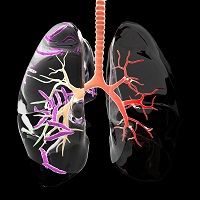Article
Retrospective Study Confirms Need for LTBI Screening Prior to Starting Biologic Therapy
Author(s):
Inflammatory chronic diseases such as rheumatoid arthritis, ankylosing spondylitis, and psoriasis bring many treatment challenges. Among them is the fact that biologic therapies for these diseases-particularly anti-TNF agents-while effective, can themselves bring reactivation of a latent tuberculosis infection.

Inflammatory chronic diseases such as rheumatoid arthritis, ankylosing spondylitis, and psoriasis bring many treatment challenges. Among them is the fact that biologic therapies for these diseases—particularly anti-TNF agents—while effective, can themselves bring reactivation of a latent tuberculosis infection (LTBI). In some cases, this can be an example of the treatment being potentially worse than the disease.
Screening and treatment of latent TB is widely regarded to be essential prior to starting biologic therapy, but not all rheumatologists and dermatologists are aware of this need or the important step of frequent follow-ups with patients. Moreover, some of the guidelines for how to screen for and treat TB make doing either a somewhat daunting proposition. For example, one of the common tests for latent TB is an IGRA test, but studies have shown that IGRA can give false-negative results in up to 20% of patients. Once therapy for latent TB begins, it can take up to 12 months of monotherapy or 3 months for combination therapy. During that time, patients with these conditions should not be treated with anti-TNF agents.
A retrospective study in The International Journal of Dermatology confirms that a screening tool for biologic-receiving patients is mandatory and that periodic follow-up with patients taking biologics is also essential. The study looked at using tuberculin skin test as a screening method. The review included 455 patients given purified protein derivative (PPD) tests from 2006 to 2012. Tuberculin skin test was performed in all patients prior to treatment and once a year during the follow-up. PPD was considered positive with an induration above 5 mm.
The prevalence of LTBI in the reviewed population before initiating the treatment was 4.5% by using TST screening method. During the treatment, 10 cases that were initially TST-negative became positive. Only one of the patients developed active tuberculosis infection.The other 9 TST-positive patients were detected during the regular annual screening, and no symptoms or findings on chest x-ray were seen. All the patients were treated with isoniazid (INH) for nine months, and biologic therapy was restarted after one month of treatment with INH without development of overt TB infection in any of them during the follow-up period of the study.
One study result points to the importance of using retrospective analysis for these patients: the mean time to becoming TST positive from start date was 26.7 months (range from 8 months to 5 years). Prior to initiating treatment, 20 patients were found to be TST positive. All patients had clear chest x-rays and were treated with nine months of INH prior to initiating biologic therapy at least month later.
Though this study focused on screening prior to and during treatment of dermatologic conditions, the applications for rheumatologists and other caregivers are clear.





